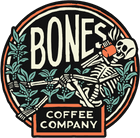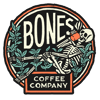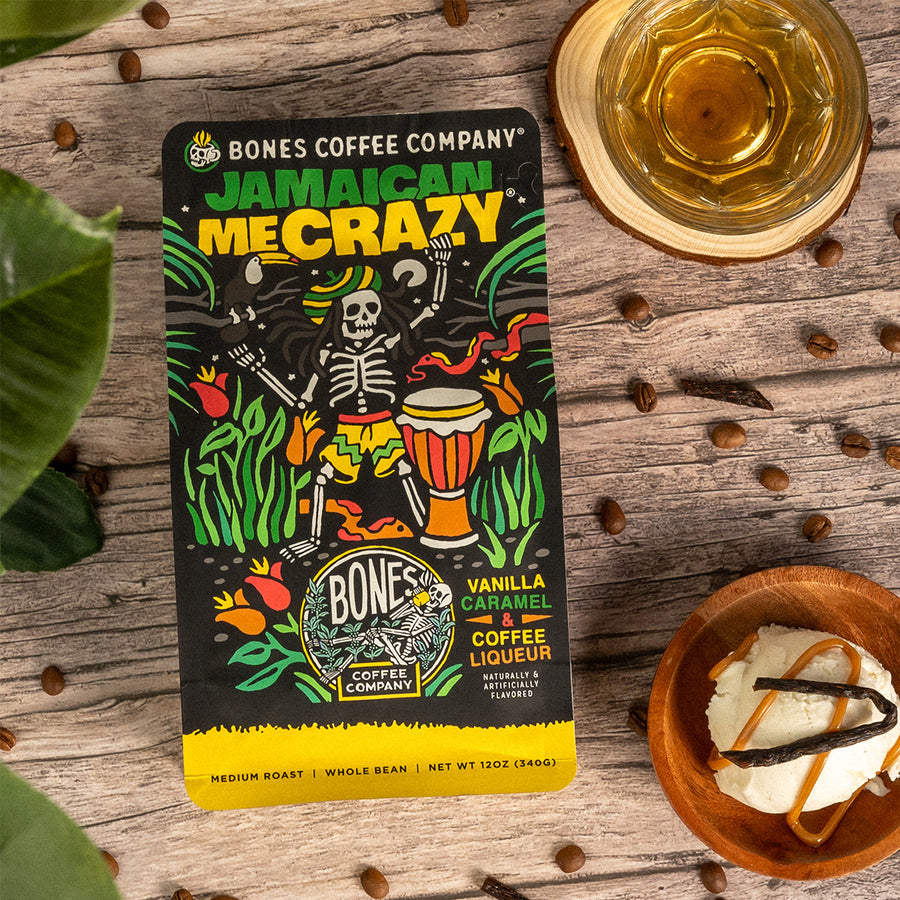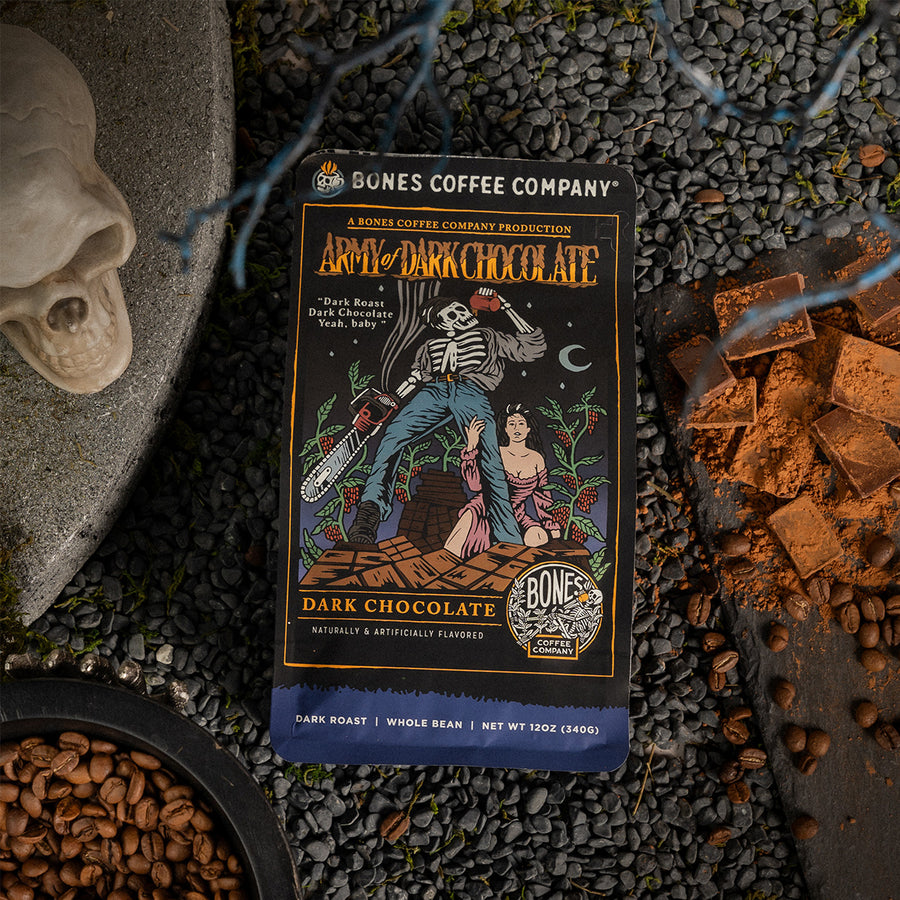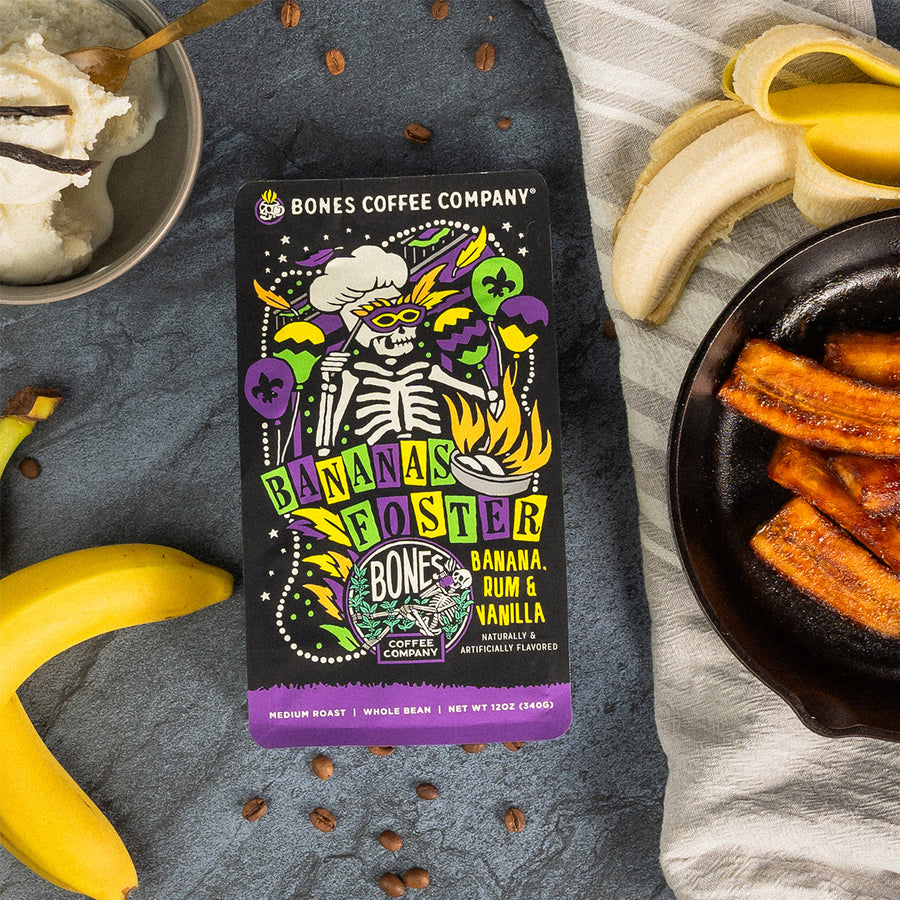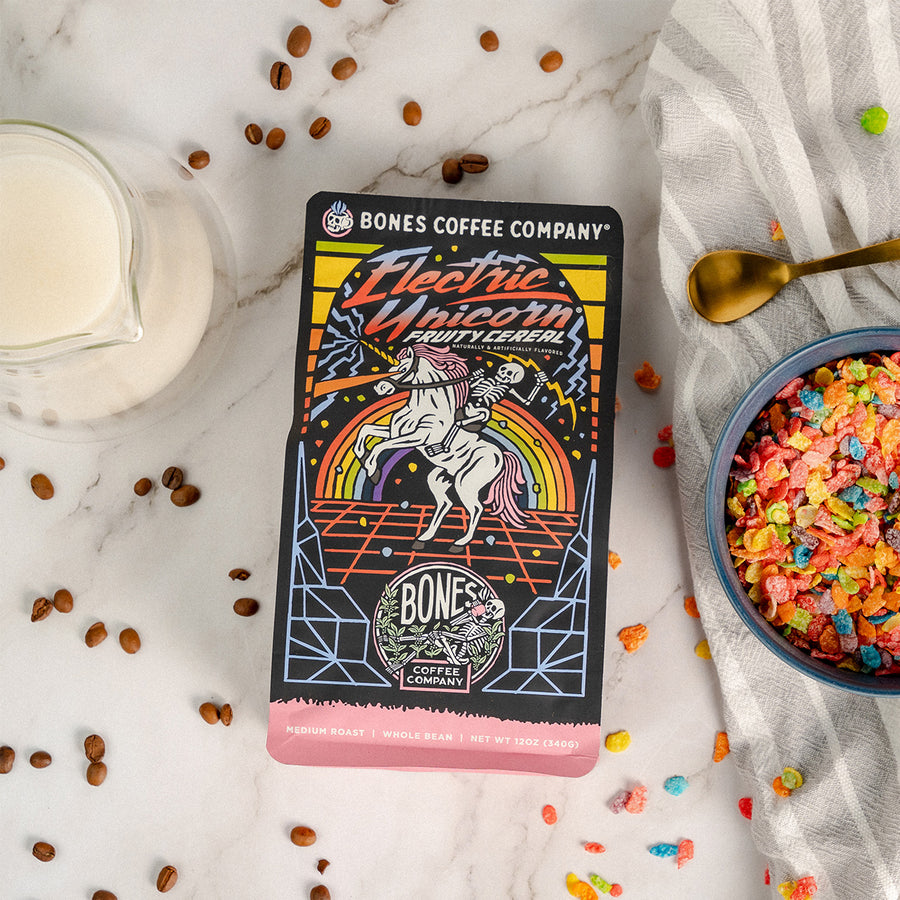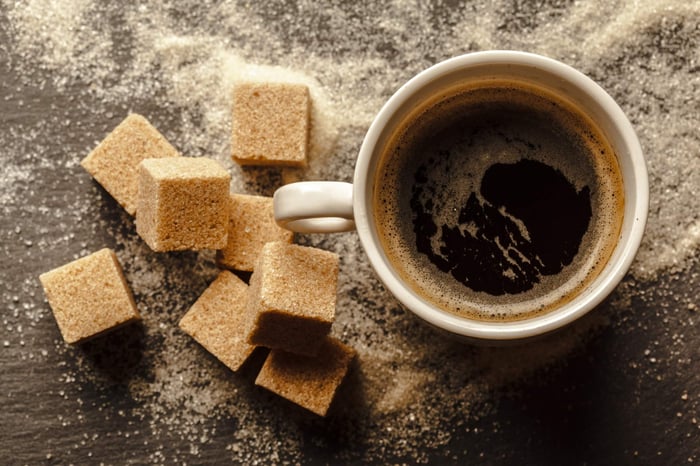We've all been there. You brewed a full pot of that perfect morning coffee, but life got in the way, and now you're staring at a carafe of leftover brewed coffee, wondering if it's safe to drink tomorrow. The good news is that coffee can indeed be stored in the refrigerator, but the timeline depends on several factors that go beyond just "keeping it cold."
In this comprehensive guide, Bones Coffee Company will explore exactly how long different types of coffee last in the refrigerator.
Does Coffee in the Fridge Go Bad?
Yes, but not in the way you might think. While coffee in the fridge doesn't spoil quickly like dairy milk, its flavor and freshness start to fade over time. In the sections below, we'll cover how quality differs from safety, why adding milk changes the rules, and how to spot a cup that's past its prime.
Coffee Quality vs Food Safety
Coffee "going bad" happens in two ways. There's the flavor degradation (when your once freshly brewed coffee tastes flat, bitter, or just plain weird), and then there's the actual food safety concern (which is pretty rare with plain black coffee, but becomes a real issue when you've added milk, cream, or other perishables).
A 2024 Food Science & Nutrition study found no detectable bacterial growth in refrigerated black coffee for up to 42 days, largely due to its acidity and natural antimicrobial compounds.
Still, the study noted that flavor degradation begins much sooner than spoilage. The sensory defect scores (especially sourness and “papery” notes) begin increasing between Day 7 and Day 14 and become statistically significant around Day 14 and beyond.
The Dairy Game-Changer
The moment you add dairy, plant-based milk, or flavored syrups to your coffee, you're entering a completely different game. Now you're dealing with ingredients that can actually spoil, curdle, or develop bacteria quickly. Coffee with these additives should be treated as perishable and consumed within 1–2 days, even if refrigerated.
Whether you've added regular milk to your afternoon iced coffee or oat milk to your morning brew, these additions create an environment where bacteria can thrive. Your brewed coffee creation transforms from a low-risk beverage into something that needs the same careful handling as any other perishable food item.
Trust Your Senses
Sensory quality is the first thing to decline. If your leftover coffee starts to smell sour, taste unusually stale, or develop unexpected bitterness, it’s a clear sign it has gone beyond enjoyable. When in doubt, your nose and taste buds are the best tools. If it doesn’t smell or taste right, it’s time for a fresh cup.
When you're dealing with Bones Coffee Company’s unique coffee products, you want to make sure you're getting the full flavor experience even after refrigeration. Here are three of our standout flavors that maintain their character when stored properly:
How Long Different Types of Coffee Last in the Fridge
Not all brewed coffee keeps the same way once it hits the fridge. From hot to cold brews, each type has its own shelf life. Here’s how long your favorites really last in the fridge.
Hot Brewed Coffee
Hot brewed coffee can stay microbiologically safe in the fridge for up to 42 days, but its flavor starts to noticeably drop off after just 3–4 days. To ensure you drink fresh coffee with peak taste, consume it within a few days.
If you've added anything to your hot brewed coffee, such as cream, milk, or fun flavored syrups, you're looking at just 1–2 days maximum for both safety and taste, even if you put the coffee in the fridge. This is because dairy and other additives spoil much faster than black coffee.
Cold Brew Coffee
Cold brew coffee holds onto its flavor better than hot brewed coffee, thanks to its low-acid, slow extraction process. Sensory changes stay minimal for up to 10–14 days when stored properly.
But don’t get too comfortable. While cold brew retains its flavor longer than hot coffee, sensory changes such as increased sourness and subtle off-notes start to emerge around Day 14, becoming more noticeable over extended storage.
Cold Brew Coffee Storage Tip: If you're planning to store your cold brew for maximum freshness, keep it naked, just pure, beautiful cold brew concentrate. Additives such as dairy and flavored syrups can transform your cold brew from a week-long champion into a 1–2 day sprint. Add them only when you are ready to drink. |
Coffee with Milk or Plant-Based Additives
Coffee with any dairy products has a dramatically reduced shelf life of just 1–2 days maximum in the refrigerator. We're talking about milk, cream, half-and-half, or even that fancy oat milk foam you perfected for your Instagram shot.
Non-dairy alternatives aren’t necessarily your get-out-of-jail-free card either. While some plant-based milks, such as almond, oat, or coconut milk, might offer slightly more staying power than dairy, they're still far less stable than black coffee. As a recent scientific review on plant-based beverages notes:
“Many of these [cow milk alternatives] faces some/any type of technological issues; either related to processing or preservation.
—Sethi, Tyagi & Anurag, Plant-based milk alternatives an emerging segment of functional beverages: a review
Shelf life, emulsion stability, nutritional completeness and sensory acceptability remain significant challenges.
Some of Bones Coffee Company’s most incredible flavors are designed to be absolutely delicious on their own, no dairy or non-dairy additives required. These bold products deliver such rich, complex taste profiles even without such additives:
We also have a Coffee Subscription to make our coffee products more accessible and cost-efficient. You’ll save 20% on every shipment, enjoy auto-delivery on your schedule, and have the freedom to change flavors. Pause or cancel anytime!
Signs Your Refrigerated Coffee Has Gone Bad
Coffee in the fridge won’t last forever, even if you put it in an airtight container. If you're unsure whether to sip or skip, here are the key signs you have spoiled coffee in the fridge.
Visual Indicators
Your eyes are your first line of defense when it comes to spotting brewed coffee that's gone rogue in your fridge. Just like you wouldn't ignore a questionable leftover pizza lurking in the back corner, your refrigerated coffee deserves the same visual inspection. Your inspection should be even more thorough if your coffee is left at room temperature.
Here are visual indicators that your coffee has gone bad:
- Mold Growth: If you spot any fuzzy patches floating on the surface or clinging to the sides of your sealed container, that's your cue to dump the entire batch immediately.
- Color Changes: If your coffee starts looking murky, develops an unusual tint, or appears significantly lighter or darker than when you first brewed it, something's not right.
- Separation and Curdling: While some separation is normal (especially with plant-based milks), excessive curdling that creates chunky, cottage cheese-like textures is a definite no-go.
Smell and Taste Tests
Your nose and mouth are like coffee detectives. They will tell you everything you need to know about whether that leftover coffee is still worth a sip. Be on the lookout for these smell and taste indicators that your coffee has gone bad:
- Sour or Vinegar-Like Smells: If your coffee has gone rogue, your nose will know immediately with sharp, acidic aromas that are major red flags. This smell is completely different from coffee's natural brightness and signals that bacteria have crashed the party.
- Musty or Fermented Odors: You might also detect musty or fermented odors. Sometimes the smell can be so off-putting that it reminds you of wet cardboard or even cleaning products, not the aromatic adventure you signed up for.
- Overly Sour or Bitter Flavors: Watch out if your coffee’s flavor is overly sour or bitter, especially when those notes weren't there originally. If your smooth medium roast made with the freshest beans suddenly tastes like it's been infused with lemon juice and regret, that's spoilage talking.
When In Doubt, Throw It Out: The cost of dumping a cup or two of coffee is nothing compared to spending your day feeling awful because you took a gamble on sketchy leftovers. Your stomach (and your taste buds) will thank you for playing it safe. |
Keep Your Coffee Fresh and Delicious
So, how long does coffee last in the fridge? It remains microbiologically safe for up to 42 days, but its flavor starts to decline much sooner, around 3–4 days for hot brews and after about 10–14 days for cold brews. Once milk or plant-based additives are introduced, shelf life drops significantly to just 1–2 days.
At Bones Coffee Company, we're all about delivering that perfect cup experience from the very first sip. Our small-batch roasting process means you're getting coffee at its peak freshness, so every stored cup still tastes like the adventure it was meant to be. Explore our collection of mind-blowing coffee flavors today because life's too short for stale coffee and bland mornings.
